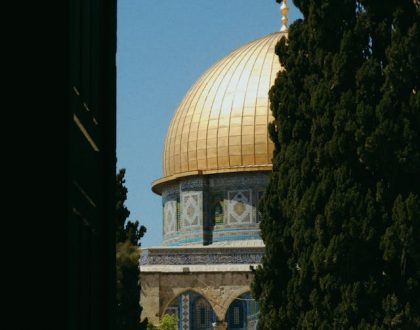Don’t kick the chance to fix your mistakes

Alhamdulilah we are blessed that we could witness Ramadan. Many people departed from this world to the akhirah, some passed away just before it started and some will not make it to the end.
We are fortunate therefore, that we have been given the opportunity to fast, to pray and to recite the Quran. Life itself is an opportunity from Allah. For everyone who has been given this gift, we have done nothing to deserve this gift. He gave life as a gift and He takes life. Look at how many opportunities we have been given by Allah.
Three golden opportunities
Three major opportunities are mentioned in the hadith of the Prophet (peace be upon him), as narrated by Abu Hurayrah (may Allah be pleased with him):
عن أبي هريرة رضي الله تعالى عنه عن النبي، صلى الله عليه وسلم قال: ”الصلوات الخمس والجمعة إلى الجمعة، ورمضان إلى رمضان، مكفرات ما بينهن إذا اجتنبت الكبائر”.(رواه مسلم).
“The five daily prayers, and from one Friday prayer to the next, and from Ramadan to Ramadan, are expiations for the sins committed in between them, as long as major sins are avoided.” (Muslim)
The first opportunity is salah which, for every Muslim, is supposed to be the focal point of their life. As human beings, we have been created weak, prone to error and sin, and we are often overcome by temptations. However, Allah Almighty has provided us with timely chances to expiate these sins. We have salah in which minor sins committed since the last salah are erased. This is a small window – a couple of hours or more depending on the salah and time of the year. However if you do not pray, you have a problem.
The next opportunity is Jumuah. From one Jumah to the next Jumuah, our minor sins are forgiven. The third opportunity is annual. From one Ramadan to the next, you have the chance to clear your record and open a new page.
It is worth bearing in mind that major sins are not rectified by salah, nor attending Jumuah, nor Ramadan. They require dedicated repentance, which involves:
1-Regretting what you have done,
2- Ceasing the sin you committed,
3- Resolving not to commit it again.
4- If you wronged someone, seeking their forgiveness.
It is not enough to ask Allah for forgiveness, if you wronged someone, because it was someone else whose rights were violated, so you need to fix that. When these conditions are fulfilled, major sins are forgiven.
Allah has given us multitudes of opportunities on a daily, weekly and annual basis. He is undoubtedly the most generous – He is the Karim. Yet there are many who kick these opportunities aside and insist on perpetrating evil. They have no one to blame but themselves.
At the end of Surat Yasin, Allah Almighty describes them, when He says : yaa hasratan ‘alal ‘ibaad; maa ya’teehim mir Rasoolin illaa kaanoo bihee yastahzi ‘oon:
یَـٰحَسۡرَةً عَلَى ٱلۡعِبَادِۚ مَا یَأۡتِیهِم مِّن رَّسُولٍ إِلَّا كَانُوا۟ بِهِۦ یَسۡتَهۡزِءُونَ
Alas for the slaves (of Allah)! No messenger came to them, but they have been mocking him. [Yā-Sīn, 36:30]
Allah is referring to the ones who wasted their chances to join the people of faith and rejected all the calls to do good. They will be people of regret. The term “al-hasrah” refers to their grief and sorrow over what has passed. Messengers came to them, but they mocked them. They turned down the opportunity of imaan. They could have saved themselves from severe punishment, but now they are in a state of acute regret. They will wish they could go back to their previous life and change their actions and destiny.
In Surat al Muminoon, Allah states:
حَتَّىٰۤ إِذَا جَاۤءَ أَحَدَهُمُ ٱلۡمَوۡتُ قَالَ رَبِّ ٱرۡجِعُونِ
لَعَلِّیۤ أَعۡمَلُ صَـٰلِحاً فِیمَا تَرَكۡتُۚ كَلَّاۤۚ كَلِمَةٌ هُوَ قَاۤىِٕلُهَاۖ وَمِن وَرَاۤىِٕهِم بَرۡزَخٌ إِلَىٰ یَوۡمِ یُبۡعَثُونَ
(The infidels go on doing their misdeeds) until when death comes to one of them, he will say, “My Lord send me back, so that I may act righteously in that (world) which I have left behind.” Never! It is simply a word he utters, and behind such people there is a barrier till the day when they will be resurrected. (Al-Muʾminūn, 23:99-100)
Unfortunately today people are wasting the opportunity to rectify what is wrong and make it right. They are not calling for a ceasefire in Palestine. They rejected it with their veto four times – ignoring opportunity after opportunity. These will be the ones who will be filled with deep regret who cannot come back and rectify it.
Do not waste any opportunity. Opportunity is a call from Allah to rectify what is wrong – whether it is a sin or a mistake, or on a vast scale like genocide – killing innocent civilians, women and children and destroying their homes, livelihoods and lives. It is very cruel.
Allah is giving us the opportunity – the world and its leaders – to rectify wrongdoing, not to side with any party but just to do the right thing. Is that so complicated to understand? Those who do waste the opportunities do so to their own detriment. You reap what you sow. Those who plant hatred and commit crimes will be haunted by them, in this world and the Hereafter.
No sane people will argue against that. We have lost count. Beyond 31,000 were killed, more than half were children. Beyond 73,000 are injured and there are no statistics for how many are under the rubble.
Ramadan is the time of closeness to Allah. Let’s keep supplicating to Allah and raising our voices and mobilising our forces through legitimate means to help the oppressed in Palestine and we ask Allah to stop the bloodshed sooner rather than later. Ameen.
Based on the Khutbah of Shaykh Haytham Tamim 15th March 2024
- The forces of Allah and the fate of the falsifiers
- Climbing the stairs: How to continue your spiritual journey post-Ramadan
- How Allah strengthens the hearts of believers
- Why should you follow up one good action with another one?
- Don’t be a Ramadani person – Be a Rabbani person.
Recommended Posts

The forces of Allah and the fate of the falsifiers
April 26, 2024

How Allah strengthens the hearts of believers
April 19, 2024

